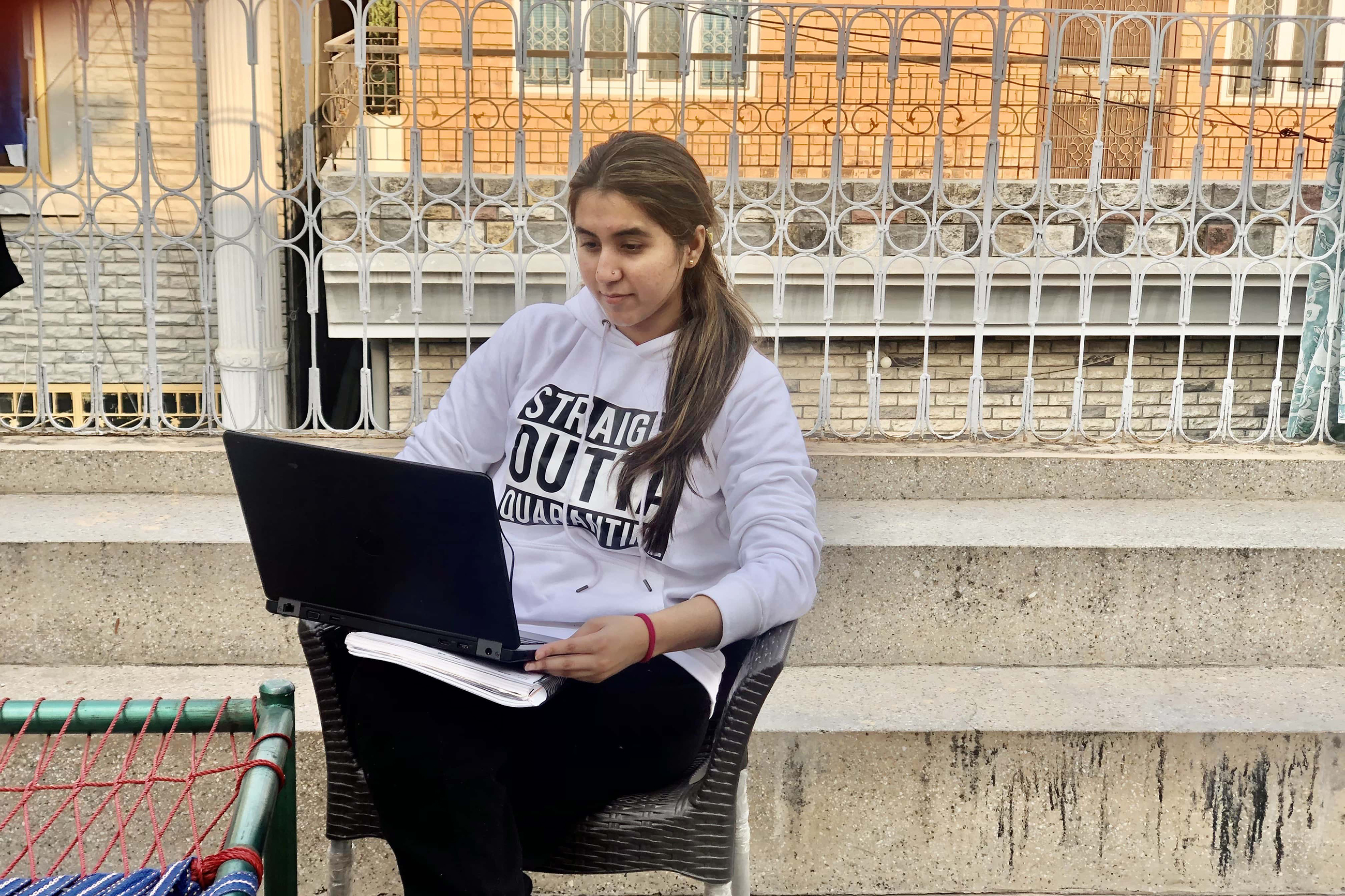Aliza Awan, ‘21, studies Recreation, Leisure and Sport Management with a Concentration in Therapeutic Recreation at Southern. An American citizen, she is currently taking classes virtually from Pakistan. Before fall 2020, Awan had never taken an online course before.
AWAN: “I came to the United States with my family in 2009 and have studied here ever since. But after the pandemic, I was home bound for more than 5 months. In the middle of all this, I got news that my mother, who is living in Pakistan, my birthplace, had fallen sick because of diabetes. When Southern switched to a virtual environment, I returned to Pakistan to be there for my mother.
“I live in a city called Rawalpindi, which is a 1- or 2-hour drive from Islamabad, the capital of Pakistan. I belong to an ethno-regional community called ‘Punjabi.’ The area I live in welcomes different cultures. There is a church close by and several other worshipping places for different ethnicities.”
Awan describes Pakistan during COVID:
AWAN: “Pakistan was under complete lockdown when cases began to rise above 17,000 or more; there was no exception of leaving the house unless of an emergency. Businesses were shut down, and masks were mandatory. If you were seen without a mask, police were allowed to serve a beating to that specific person. Small businesses were unable to progress. Many shopkeepers began risking their lives and secretly opened their shops to provide for their families. Gradually, there was a drastic decrease in the number of cases and so the government chose to lift the lockdown, but shops were not allowed to stay open after 8 p.m. If anyone passed the curfew the police force were given full authority to forcefully shut them down. Now the Prime Minister, Imran Khan, has announced a second wave of lockdown due to a slight increase in the cases. Nothing yet has happened and people are not taking safety precautions, only the schools have switched to digital classes, and businessmen don’t go to offices on daily basis.”
Awan says that virtual learning takes on another element of difficulty due to the time difference.
AWAN: “Pakistan is 14 hours ahead of America. When it is 8:00 a.m. in the U.S., it is 6 p.m. in Pakistan. I took 5 classes this semester, one of which is fully online. The first couple of weeks were intense for me because of jetlag and constant family gatherings. I also had issues with my wifi connection, since Pakistan is known for power shortages at random hours.
“My first lecture begins at 6 p.m. and ends at 7:30 p.m. The second begins at 9 p.m. and ends at 10 p.m., and the third class begins at 1:25 a.m. and ends at 2:40 a.m. On Wednesdays, I have one class, which begins at 3 a.m. and ends at 5 a.m.
“The class at 3 a.m. is extremely difficult because I can only sleep for a specific amount of time and it may not be a lot to help me stay awake at that time. At first, when I faced jet lag, I used to sleep all day and wake up in the evening when it was time for my lectures. I tried my best to manage everything all at once but there were times when I did not have the energy to stay concentrated. My mom used to stay up with me in case I slept. I did drink coffee many times just to stay up for this class. The only good thing about my class on Wednesday was that I did not had any other class prior to this class — I only had to attend the class at 3 a.m. till 5 a.m. and on Thursdays I had to get up around 2 p.m. to fully prepare myself for the three classes. I may not have been efficient in my studies, but I was definitely the most appreciated student, which I am thankful for.
“Facing these circumstances made me realize how difficult it is for several students who have more rigorous schedules and who take their classes from abroad. I wouldn’t include myself in their category because I am not nearly as strong-willed as them. According to me, a student who manages to stay up after midnight just to attend a 1-hour lecture and complete assignments is a force to be reckoned with because of the seriousness they show towards their work. There are many students who are doing this, and I don’t have the right words to describe how much I appreciate their enthusiasm.”
Awan talks about 2021 and life after graduation:
AWAN: “Since I have only one year left to earn my bachelor’s degree, I am eager to do internships in Pakistan, if they offer, and in America. Since I am a U.S citizen I have the benefit of traveling at any time anywhere, but due to traveling restrictions it has become difficult. If universities reopen in U.S. I will come back to complete the next semester and hopefully graduate. If this isn’t the case, I will stay in Pakistan and complete the rest of the semester. I really appreciate my teachers for recognizing my hard work and my determination.
“After gaining enough experience I aim to open a clinic or institute of my own in Pakistan, which will complement my degree. I am choosing to benefit from this degree so I can help the minority culture in Pakistan. There is a division between classes — I hope to provide my services to the lower class of Pakistan.”
Awan’s professor Maddalena Lolaico, instructor of Italian, Department of World Languages and Literatures, describes Awan’s determination:
LOLAICO: “I am impressed by how Aliza is engaged in my class. She is always an active participant, even when her internet is slow. She is a model and an example for other students. In a time where our students struggle to be in a synchronous class, she is trying her best.”



